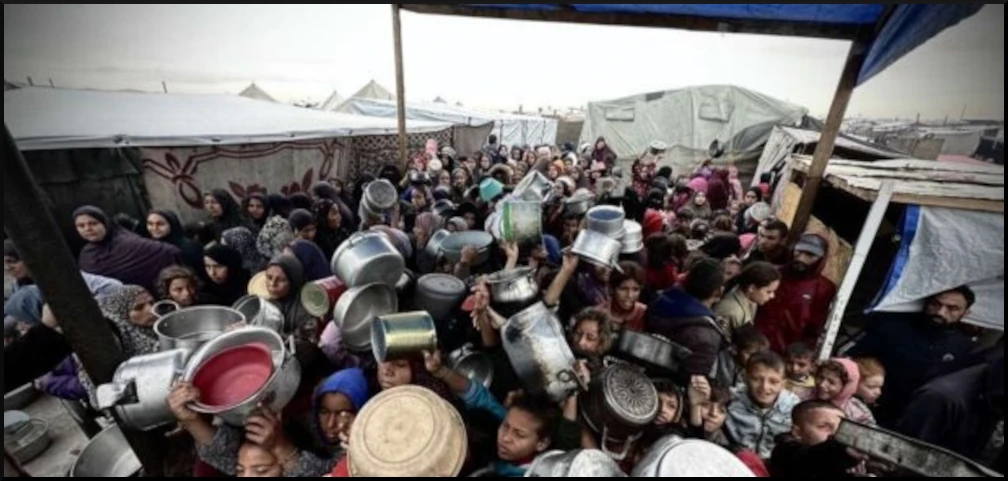Compilation of news reports – IAK staff
We can’t forget Gaza despite the catastrophe in Syria. The Genocide continues. ~jb
The Gaza civil defense on Friday said as many as 100 Palestinians were killed in Israeli attacks and massacres in northern Gaza in the past 24 hours. 75 of the victims were killed in Israeli airstrikes on two homes in Beit Lahia, while the others were targeted in Jabaliya and other areas of northern Gaza.
Since the start of the Israeli military incursion in northern Gaza on October 5, at least 2,700 Palestinians have been killed.
Israeli quadcopter kills ICU director at northern Gaza hospital
The head of Kamal Adwan Hospital’s intensive care unit has been killed by an Israeli attack, report our colleagues on the ground.
The official was hit by fire from one of the Israeli quadcopters hovering above the hospital and nearby areas in northern Gaza’s Beit Lahiya, said Al Jazeera’s Hani Mahmoud, in Deir el-Balah.
It is the latest attack to kill or injure staff at northern Gaza’s last partially remaining hospital, which Israeli forces have repeatedly targeted and besieged in recent weeks.
‘Families obliterated’ in Beit Lahiya airstrikes
Gaza’s civil defense spokesperson Mahmoud Bassal announced two attacks by Israel; the death toll from both stands at 75.
In a statement, Bassal said it is difficult to know what is happening on the ground in the besieged and battered north, where Israeli forces are pressing ahead with a brutal ground and aerial assault.
“Entire families are being obliterated in northern Gaza and we do not know anything about them. There are many who survive attacks under the rubble and there are no civil defense workers there to help,” he said.
Israeli weapons vaporizing bodies in northern Gaza
Dr Munir al-Bursh, director general of Gaza’s Health Ministry, spoke to Al Jazeera about the desperate situation in northern Gaza:
Here is a summary of his translated comments:
- We are unaware of the full extent of the massacres because Israeli forces prevent us from obtaining information.
- In the northern Gaza Strip, Israeli forces are using weapons of unknown nature, which have led to the evaporation of bodies.
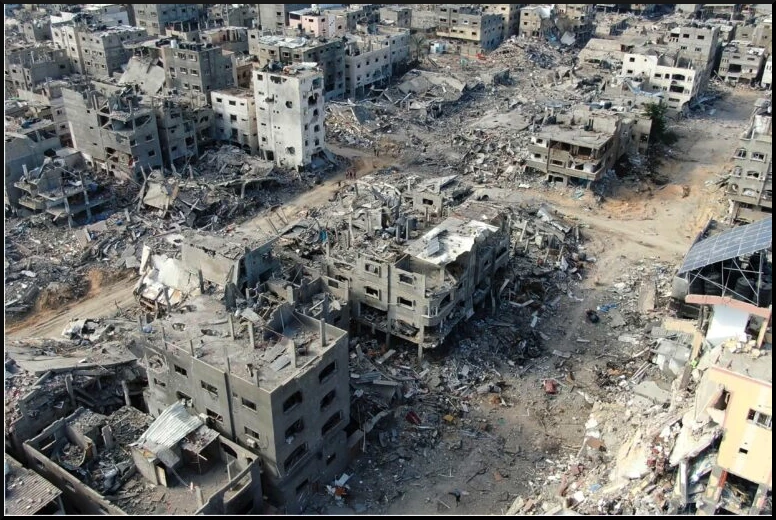
Three Palestinians killed in Gaza bread stampede
Two children and a woman were crushed to death as a crowd of Palestinians pushed to get bread at a bakery in the Gaza Strip during a worsening food crisis in the war-ravaged territory. The victims were two girls aged 13 and 17 and a 50-year-old woman. They died from suffocation.
Osama Abu Laban, the father of one of the girls, wailed over the loss of her life outside the hospital.
“She went to buy bread and she barely managed to get a loaf of bread before being swept away by the crowd of women. They brought her out a lifeless body,” he said.
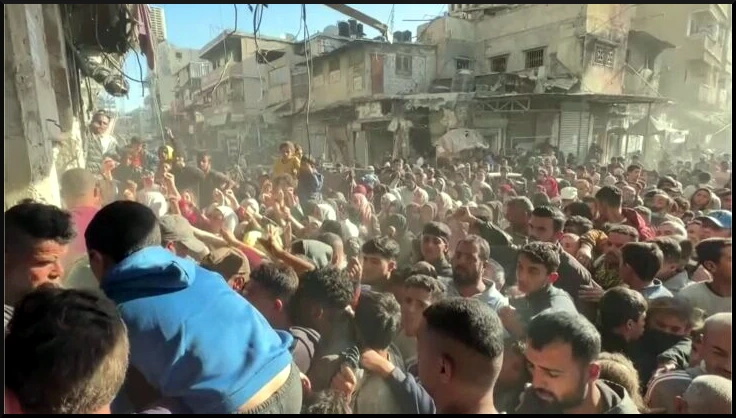
All bakeries in central Gaza shut down due to severe supply shortages: UN
The UN World Food Program (WFP) on Friday said all the bakeries in central Gaza were forced to shut down due to severe supply shortages amid Israel’s ongoing genocidal war on Gaza.
“All bakeries in central Gaza have shut down due to severe supply shortages,” the WFP said on X.
The WFP said bread, a lifeline for many families and the only food they can access, “is now slipping out of reach” for residents.
The UN organization warned that “famine remains a serious risk” for people in Gaza, urging the “safe and secure access of vital humanitarian aid into Gaza.”
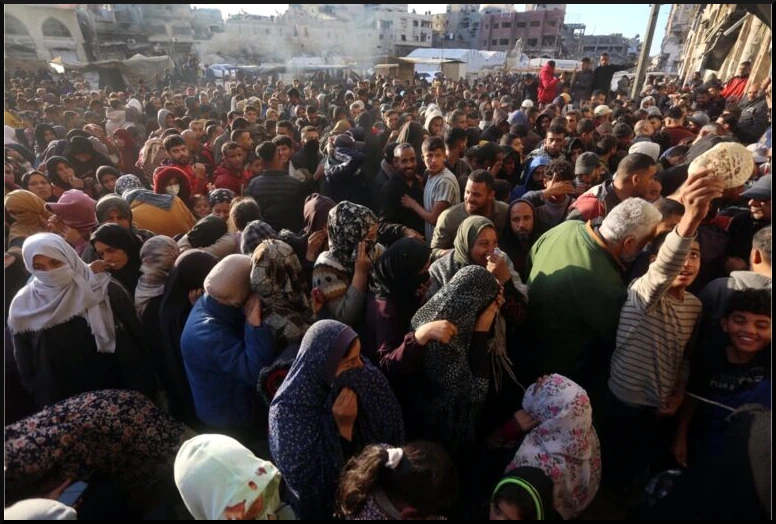
West Bank: Israeli Army Kills a Palestinian Man; Nine Settlers Injured
Israeli forces killed a Palestinian man, on Friday afternoon, after an alleged shooting attack near the illegal “Ariel” settlement, north of Salfit in the central occupied West Bank.
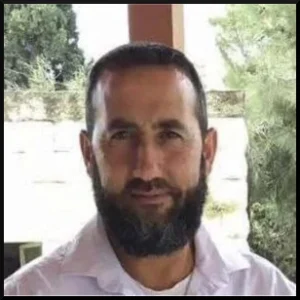
The Palestinian Health Ministry announced that the General Authority for Civil Affairs informed them that the citizen, Samer Mohammad Ahmad Hussein, 46, was shot and killed by Israeli forces north of the city of Salfit.
Media sources said that soldiers opened fire at the man after he allegedly carried out a shooting attack on a bus full of illegal Israeli colonizers near the “Ariel” settlement, built on expropriated Palestinian lands.
Sources added that after shooting the alleged perpetrator, the army denied any medical intervention, leaving the married father of five bleeding on the ground until he succumbed to his wounds; Israeli forces confiscated the body of the slain man.
The shooting attack resulted in the injury of at least nine illegal colonizers, four of whom sustained live gunshot wounds, three of those were described as serious and another moderate, while five others sustained minor injuries from shattered glass, according to the Magen David Adom ambulance service.
In a statement, the Israeli army announced that the alleged perpetrator was “neutralized” and that the area was closed off and a search operation was carried out for a possible second assailant.
Israeli army pushes deeper into south Lebanon as ceasefire violations intensify
Israeli forces continued to violate the ceasefire with Lebanon on 29 November, advancing on the southern towns of Markaba and Khiam and opening fire at citizens during a funeral – following continuous violations since the agreement went into effect two days ago.
“Israeli forces advanced today to the town square of Markaba, which they were unable to enter during the days of the confrontations, and occupied it now during the ceasefire, and the [Israeli] army is carrying out bulldozing operations and destroying roads. Civilians were present in the town yesterday,” Al Manar correspondent Ali Shoeib reported.
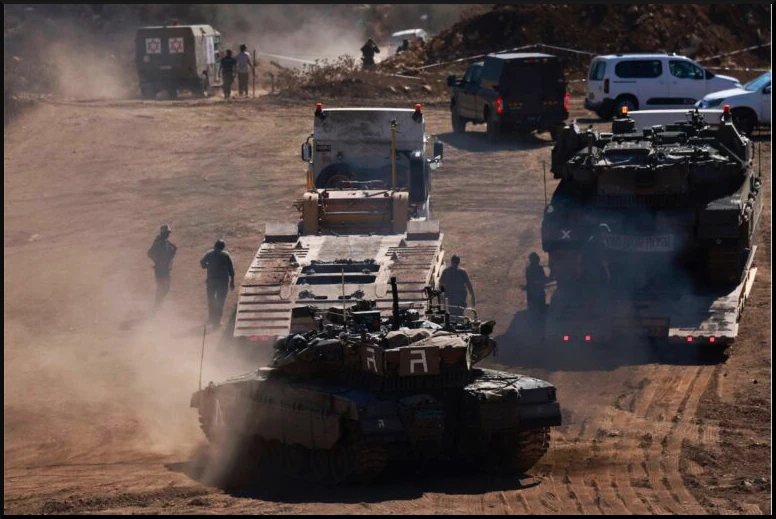
Israel faces growing isolation over Gaza war
An Israeli media report on Friday revealed that 14 months into its genocide of Gaza, “Israel is experiencing unprecedented international isolation, bleeding not only internally but externally as well.”
The Israeli newspaper Calcalist said that the forms of isolation range from the disappearance of foreign airline companies at Israel’s main airport (Ben Gurion Airport) to the suspension of arms sales to the Israeli government, cancelations of art shows by artists, halts in academic cooperation with universities worldwide, and the withdrawal of international infrastructure corporations from Israeli projects.
The newspaper also mentioned that the arrest warrants issued by the International Criminal Court (ICC) last week “will have consequences on the foreign investments in Israel.”
Calcalist said that over 300 Israeli researchers have been subjected to an academic boycott since the start of the war on Gaza in October last year. This includes bans on publishing research, cancelations of lectures and conference participations, and the withdrawal of research grants for Israeli academics.
In the airlines sector, Calcalist noted that out of 66 foreign airlines operating in Israeli airports before the war, only 14 remain, in addition to Israeli airlines.
In sports, the report mentioned that Israeli sports clubs are facing difficulties in securing contracts with foreign athletes.
The tourism sector has also been hit hard, with 90 hotels having to shut down since the war began, representing 20% of Israel’s hotel industry.
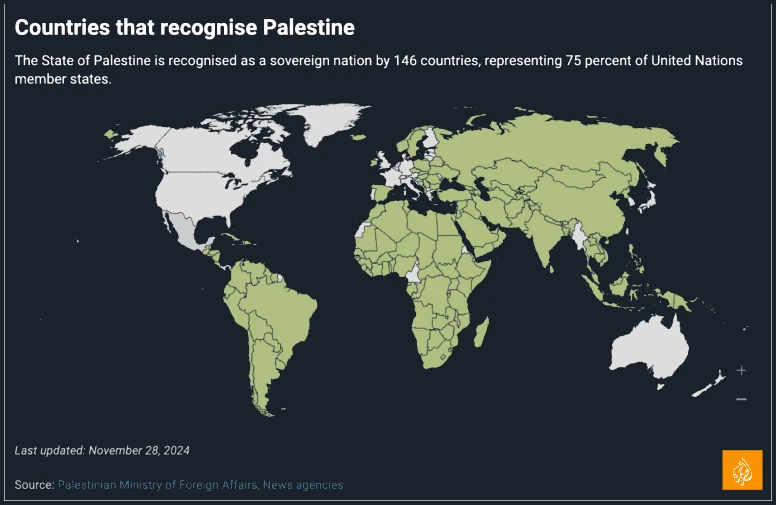
Muslim charities face discrimination as Palestinians are desperate for aid
As the people of Gaza face famine and the continued bombing of their homes by Israel, numerous Muslim charities and organizations are desperately trying to help keep Palestinians alive and help those in need.
However, many of these organizations have found over the past year that the banks they rely upon to help get this aid to the people of Gaza do not want to work with charities that are run by Muslims – especially if they are focused on Gaza. This has become referred to as “Muslim while banking”.
LaunchGood, a crowdfunding platform for Muslims, is one of many organizations that are trying to help people from Gaza who have found their payment accounts closed for no discernible reason over the past year. Amany Killawi, co-founder of LaunchGood, says she thinks these banks are afraid of receiving bad publicity for working with Muslim organizations while the highly contentious debate over the future of Israel and Palestine goes on.
“You have two problems in our space: Most banks are very risk-averse. They don’t want to support humanitarian work, even though it is all registered charities in good standing that have gone through vetting,” Killawi says. “The other issue you have is that there’s been a politicization of humanitarian aid” (continue reading here).
*Featured Image: Palestinians wait in line to receive meals distributed by charities in Khan Younis, Gaza on November 29, 2024. (Doaa Albaz – Anadolu Agency)
